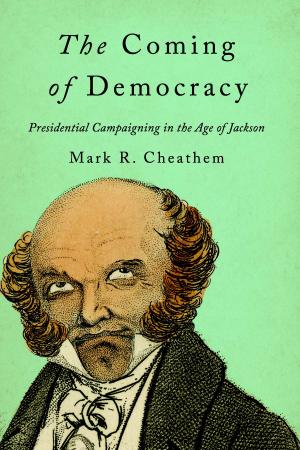The Aha! Moment
A Scientist's Take on Creativity
Nonfiction, Science & Nature, Science, Physics, General Physics| Author: | David Jones | ISBN: | 9781421404066 |
| Publisher: | Johns Hopkins University Press | Publication: | January 24, 2012 |
| Imprint: | Language: | English |
| Author: | David Jones |
| ISBN: | 9781421404066 |
| Publisher: | Johns Hopkins University Press |
| Publication: | January 24, 2012 |
| Imprint: | |
| Language: | English |
This book is about having ideas and—a much longer haul—making them work. David Jones, best known for his Daedalus column, tells a multitude of stories about creators and their creations, including his own fantastical-seeming contributions to mainstream science such as the unrideable bicycle and chemical gardens in space. His theory of creativity endows each of us with a Random-Ideas Generator, a Censor, and an Observer-Reasoner. Jones applies his theory to a wide range of weird scientific experiments that he has conducted for serious scientific papers, for challenging printed expositions, and for presentations to a TV audience. He even suggests new ones, not yet tried!
Creativity is as essential to science as curiosity, physical intuition, and shrewd deduction from well-planned experiments. But, says Jones, ingenuity is very uncertain. Even for the greatest inventors, about 80 percent of ideas fail. Jokiness can help, and so can lots of random data. Jones has plenty of clever advice that will help spark that madly brilliant private thought in the first place—and will encourage you to take it further.
Neither dense nor demanding, The Aha! Moment is engrossing, edifying, and scientifically serious; yet it is lightly written and asks lots of silly questions. As Jones shows, it can often pay to take an absurd idea seriously.
This book is about having ideas and—a much longer haul—making them work. David Jones, best known for his Daedalus column, tells a multitude of stories about creators and their creations, including his own fantastical-seeming contributions to mainstream science such as the unrideable bicycle and chemical gardens in space. His theory of creativity endows each of us with a Random-Ideas Generator, a Censor, and an Observer-Reasoner. Jones applies his theory to a wide range of weird scientific experiments that he has conducted for serious scientific papers, for challenging printed expositions, and for presentations to a TV audience. He even suggests new ones, not yet tried!
Creativity is as essential to science as curiosity, physical intuition, and shrewd deduction from well-planned experiments. But, says Jones, ingenuity is very uncertain. Even for the greatest inventors, about 80 percent of ideas fail. Jokiness can help, and so can lots of random data. Jones has plenty of clever advice that will help spark that madly brilliant private thought in the first place—and will encourage you to take it further.
Neither dense nor demanding, The Aha! Moment is engrossing, edifying, and scientifically serious; yet it is lightly written and asks lots of silly questions. As Jones shows, it can often pay to take an absurd idea seriously.















